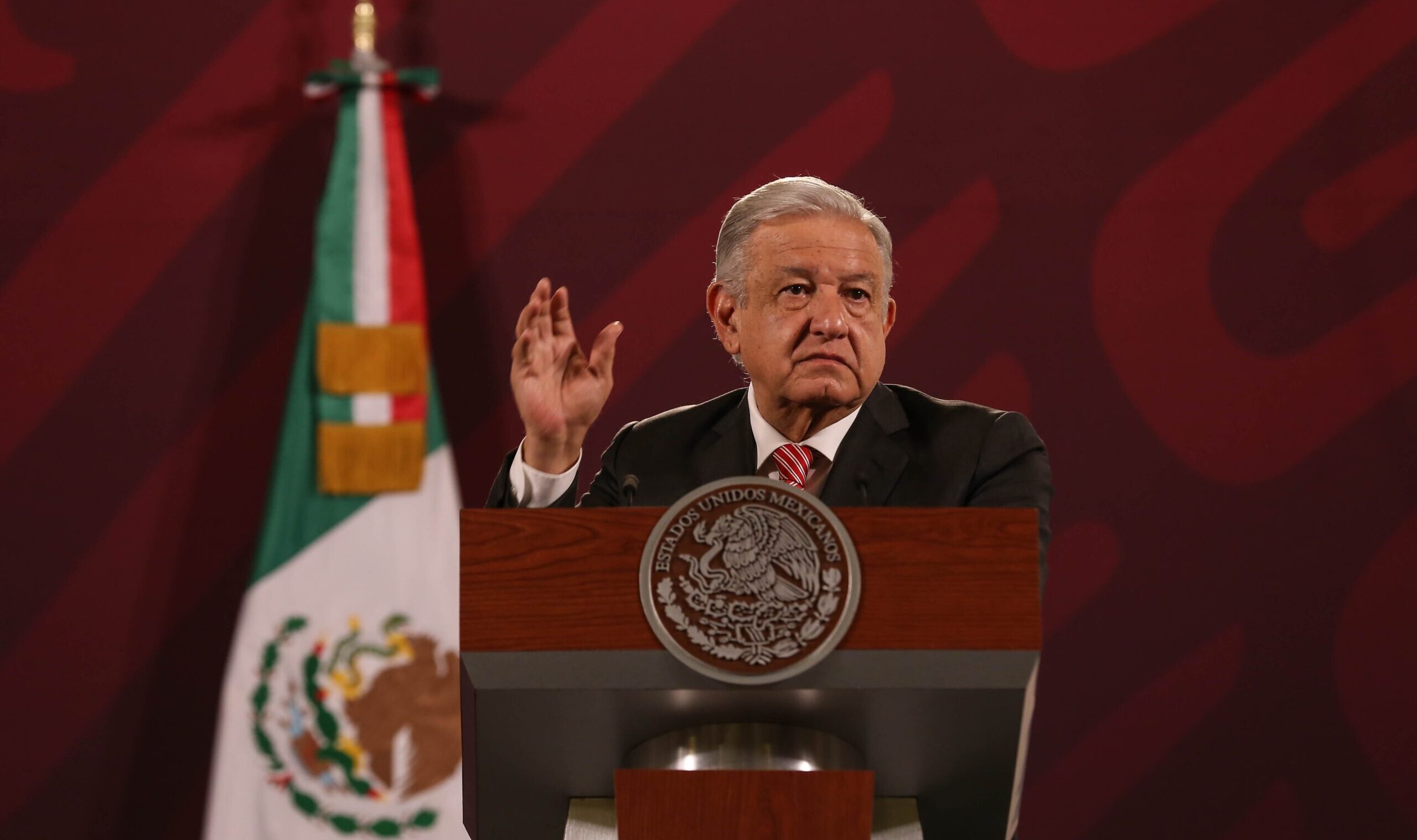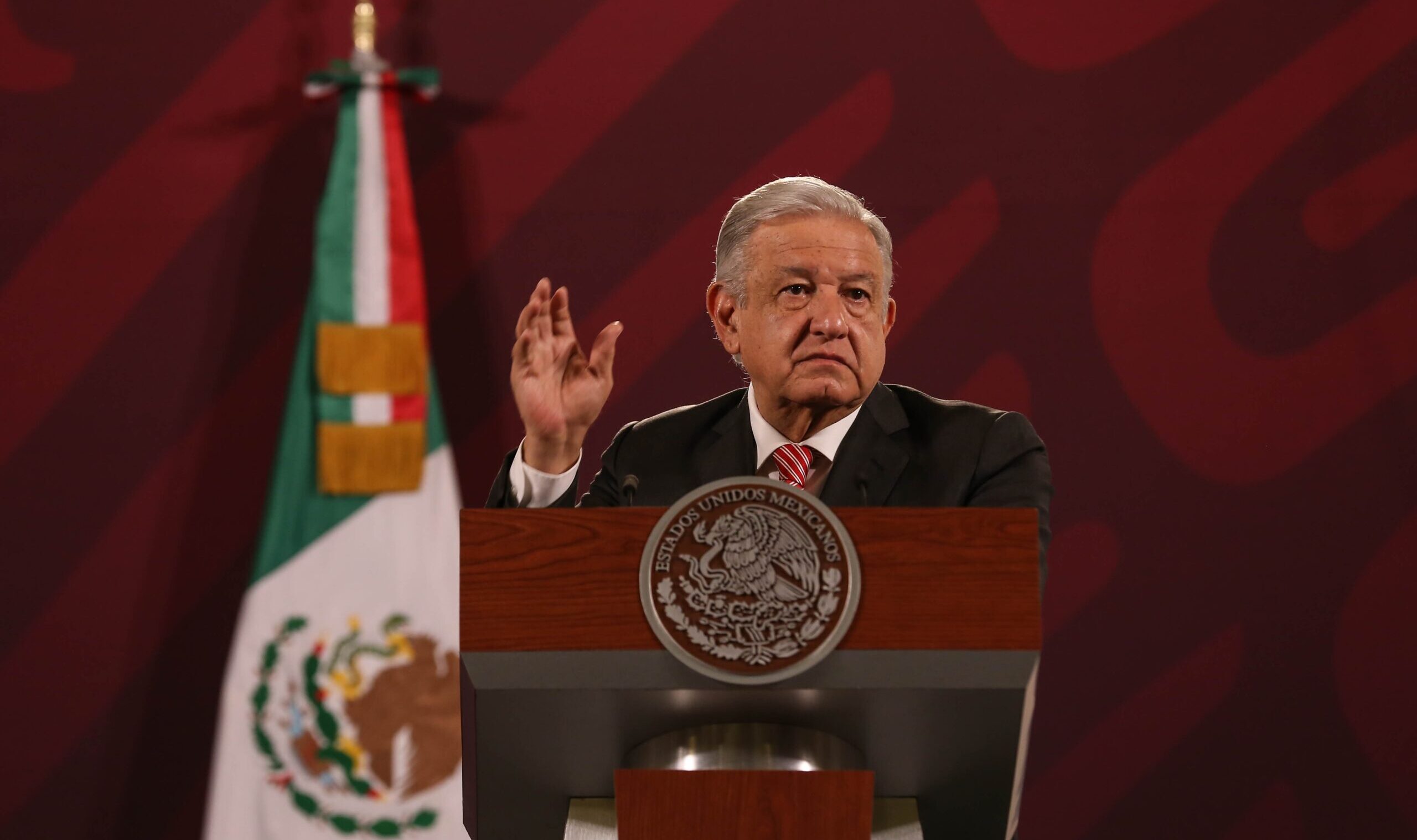Politics
Has the time has come for Congress to end its mandate that the State Department publish a yearly human rights assessment on virtually every country on the planet?

Mexico’s President Andres Manuel Lopez Obrador is again blasting the gringos, and perhaps this time he has a fair point.
AMLO has turned his rhetorical fire on the State Department’s human rights report that Secretary Blinken released on April 22. Typical of all such country reports, issued yearly, State Department heavily criticizes our southern neighbor, evaluating a wide range of political and social issues in Mexico, from government corruption to gender-based violence.
In response, over a series of morning press conferences, AMLO repudiated State’s assessment as a “violation of Mexico’s sovereignty.”
Since 1977, Congress has mandated that the State Department report on human rights in virtually every country in the world. Operating out of embassies and consulates, U.S. diplomats abroad investigate and write up country assessments, feeding back cables to the State Department’s human rights bureau (formally called the Bureau of Democracy, Human Rights, and Labor, or DRL) that then go through much intense intra-departmental discussion and debate.
The final report, updated and issued yearly, becomes a foreign policy moment when it is released. Individual country reports, often over 50 pages long, showcase sharp and critical judgments rendered by the U.S. government; they make harsh findings of fact that are out of step with the usual cautious and non-judgmental language of diplomacy.
For AMLO, the very act of Washington criticizing the human rights situation in his country is illegitimate, and a violation of international law, a view that State of course rejects. Predictably, leftist governments across the Americas, including Cuba, Colombia, Nicaragua, Venezuela, and Bolivia, have publicly joined Mexico in repudiating the report. Many other countries around the world, often privately, call in U.S. ambassadors to complain.
The Mexican president has a long history of slinging mud with Washington, but this report has particularly gotten under his skin. According to AMLO, the U.S. human rights policy represents a “double standard” and “anachronistic” judgment of foreign governments that Washington has been pushing for “two hundred years.”
In one press conference, the Mexican president turned the tables on the gringos and showed video of American police roughing up and arresting student protestors. With his usual self-awareness, AMLO promptly denounced these internal U.S. police actions as human rights violations.
Throwing in everything but the kitchen sink in scolding Washington, AMLO denounced American foreign weapons sales as an abuse of human rights, as well as sending insufficient U.S. financial assistance to Mexico and other countries in the region.
But when AMLO proclaimed, “It is a mania of the U.S. government to meddle in the internal politics of other countries,” the Mexican leader was, for once, actually right.
When Congress first mandated the human rights report in 1977, it sought to make sure that human rights records were transparent so that U.S. foreign assistance did not go to authoritarian governments and abusive dictatorships. That was not a bad idea, and the original Congressional legislation spoke of the idea of defining human rights “in keeping with the constitutional heritage and traditions of the United States.” These are, of course, the classic rule of law freedoms that limit state interference in speech, assembly, and religion; they conform with the traditional American view of the role of government in modern life.
In commissioning the State Department to report, however, Congress also made mention of the UN Charter, thereby bringing a Trojan Horse into the enterprise. With time and mission creep, the internationalist-leftist perspective proclaimed in the UN Universal Declaration of Human Rights has become a powerful point of view in the report.
No matter how nobly intended in 1948 when it was proclaimed, the Universal Declaration goes far beyond what the U.S. Constitution established as basic human rights. The Universal Declaration deems virtually all human needs—income, education, medical care, etc.—as “fundamental human rights.” These socialistic values, today, ride roughshod over the more limited American “constitutional heritage” and traditional view of human rights that Congress spoke of in 1977.
The days when Presidents Carter and Reagan effectively used the original core concept of human rights—e.g., freedoms of speech, assembly and religion—in their diplomacy against foreign dictators today seems almost quaint. Applying today’s nanny-state human rights standards, the State Department will never be out of the business of assessing each country’s domestic political situation, because no state will ever reach levels set out in the Universal Declaration.
Authoritarian government acts such as illegal arrests, disappearances, and torture are certainly covered by the modern report, as they should be, but so are a host of other lesser abuses and injustices that should not be the business of American diplomats abroad. Grave matters such as state-conducted torture, for example, should not be part of the same report that criticizes governments for the lack of health services.
Today, State Department reporting lumps together the impact of such diverse issues as societal corruption, labor standards, and climate change, and how these forces affect the quality of life in foreign countries, all under the rubric of “human rights.” The individual country assessments, in effect, chastise weak and ineffectual governments as much as authoritarian dictatorships.
Conflating these kinds of issues has morphed the report into a hodgepodge of narratives on selected injustices, from labor disputes to government failures to provide social services. The human harm of the different injustices varies considerably, with some perpetrated by ruthless authoritarian governments, but many more arising from non-state forces such as organized crime, private industry, or long-standing social conditions.
The values of the modern American liberal-left drive the country evaluations. This is particularly true under the Biden administration, but the outlook has become deeply entrenched in the DRL bureau and among many State human rights officers, regardless of who occupies the White House. That is why, beyond pressuring foreign dictatorships, the report just as often unleashes controversy over how the State Department evaluates social values and family life in traditional cultures.
A casual reader of the report might be struck by its inordinate emphasis on a foreign society’s approach to sexuality: This includes another basket of non-traditional issues such as reproductive rights, the availability of “legal gender recognition,” sexual practices and expression. These are often sensitive matters hotly disputed in America’s own internal “culture wars,” and State has no business pushing them out as part of U.S. foreign policy.
For example, in 2022, the report began to judge foreign countries on the Biden administration’s domestic view of, as State explained, “so-called conversion ‘therapy’ practices, which are forced or involuntary efforts to change a person’s sexual orientation, gender identity, or gender expression.” Should that be part of U.S. diplomacy?
The 2023 report that Secretary of State Blinken just released to AMLO’s ire has moved fully into elevating the woke social justice agenda. Going beyond even the 1948 Universal Declaration, the report evaluates “state practices denying or impeding equal access to employment, education, health care, or other governmental benefits for members of specific groups,” that include “lesbian, gay, bisexual, transgender, queer, or intersex (LGBTQI+) persons.” Eleanor Roosevelt would have balked at going so far.
The Mexican president, of course, would normally protest little about the Biden administration’s focus on the international left’s radical agenda. Matters such as systemic racism and social justice are issues that AMLO pushes domestically in Mexico.
What enrages AMLO is yanqui arrogance in grading his country, and specifically the first line in the Mexico country report that announces, “There were no significant changes in the human rights situation in Mexico during the year.” That line is followed by 50 pages of criticisms.
These gringo pronouncements gainsay all the boasting by the Mexican president that he is “transforming” his country. Washington’s arrogancia can only be answered by unleashing AMLO’s inner raging bull, defending Mexican sovereignty. For once, perhaps, it is hard to blame him.
Subscribe Today
Get daily emails in your inbox
Washington should reconsider its human rights diplomacy. The annual report long ago helped to spawn a global human-rights–industrial complex of international NGOs and rich private foundations. For years, powerhouses such as Human Rights Watch and Amnesty International lead constant campaigns evaluating, judging, and denouncing all kinds of political and social injustices. These groups write their own reports and shine lights on all kinds of shady foreign practices, with critiques often better sourced than what the State Department produces.
Let the NGOs take on the task of writing up critical human rights reports on all countries in the world. The State Department can and should still monitor governments that commit human rights violations. Countries that engage in such abuses should, as appropriate, face serious consequences in their bilateral relations with the United States.
But it is high time for Congress to pull the State Department out of the private eye business of systematically going through the dirty laundry of all countries in the world and judging their performance on sensitive matters that, in some cases, are far from settled in the United States.
